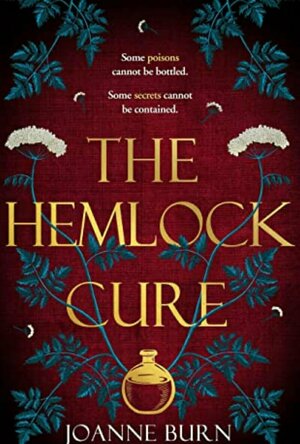Search
Search results
ClareR (6062 KP) rated The Hemlock Cure in Books
Apr 6, 2023
The Hemlock Cure was a fascinating insight into the lives of ordinary people during the Black Death (Bubonic Plague) epidemic of 1665-1666. The plague is very much in the background of this story for most of it, though.
The real evil isn’t a disease, it’s being shut in with people who clearly do not have good intentions.
The village of Eyam is well known for the decision to shut itself off from the outside world when its inhabitants started to become ill and die. They understood that the only way to halt the spread of the disease was to isolate themselves - a selfless act.
This novel looks at some of the families and their relationships inside and outside of their family units. The local apothecary and his daughter Mae, are one such family. Mae is desperate to be her fathers apprentice, but this isn’t a time in history where it’s safe for a woman to be working with herbs. So Mae studies with the midwife and a local wise woman (who are both also skating on thin ice, truth be told).
The plague wasn’t a constant in London it appears, and we travel there with one of the main characters. The contrast between the country village and London was quite something to read. I could almost smell the difference off the page!!
I enjoyed the pacing of this book: in Eyam the time crawls, whilst in London everything is all hustle and bustle.
The slow reveal of the terrible secrets in Mae’s family are not so much shocking as terrifying. Wulfric, Mae’s father, is not a well man. It seems to be a race against time for Mae.
I would most definitely recommend this book to historical fiction fans - and if you like a mystery, you may well like this as well.
The real evil isn’t a disease, it’s being shut in with people who clearly do not have good intentions.
The village of Eyam is well known for the decision to shut itself off from the outside world when its inhabitants started to become ill and die. They understood that the only way to halt the spread of the disease was to isolate themselves - a selfless act.
This novel looks at some of the families and their relationships inside and outside of their family units. The local apothecary and his daughter Mae, are one such family. Mae is desperate to be her fathers apprentice, but this isn’t a time in history where it’s safe for a woman to be working with herbs. So Mae studies with the midwife and a local wise woman (who are both also skating on thin ice, truth be told).
The plague wasn’t a constant in London it appears, and we travel there with one of the main characters. The contrast between the country village and London was quite something to read. I could almost smell the difference off the page!!
I enjoyed the pacing of this book: in Eyam the time crawls, whilst in London everything is all hustle and bustle.
The slow reveal of the terrible secrets in Mae’s family are not so much shocking as terrifying. Wulfric, Mae’s father, is not a well man. It seems to be a race against time for Mae.
I would most definitely recommend this book to historical fiction fans - and if you like a mystery, you may well like this as well.
Rachel King (13 KP) rated Year of Wonders in Books
Feb 11, 2019
Even though I don't usually read historical fiction, this one peaked my interest. I had no idea that the village of Eyam actually existed when I read it, but the idea of a village instituting a self-imposed quarantine seemed both plausible and intelligent. Watching the village through the eyes of Anna was a bit like the morbid attraction of a massive car crash. In addition, I knew so little about the Black Plague that I thought this would give me an imaginative recounting of living during such a tragic time in history.
I found the opening to the book to be confusing and seemingly irrelevant to the main plot - only at the end is the opening scene explained, but the complete scenario still seems disconnected from main plot and an added tool to simply move the main plot along by giving Anna a way to leave the village. At the same time, the faith and endurance that some of the characters exhibit is both profound and inspiring. I don't know that I could have had the same courage to face almost inevitable death as these characters did, or even with the same attitude of complete acceptance that Anna displays.
I found the opening to the book to be confusing and seemingly irrelevant to the main plot - only at the end is the opening scene explained, but the complete scenario still seems disconnected from main plot and an added tool to simply move the main plot along by giving Anna a way to leave the village. At the same time, the faith and endurance that some of the characters exhibit is both profound and inspiring. I don't know that I could have had the same courage to face almost inevitable death as these characters did, or even with the same attitude of complete acceptance that Anna displays.

